Latest News: New publication from the ECHILD team – Intensive home visiting for adolescent mothers in the Family Nurse Partnership in England 2010–2019: a population-based data linkage cohort study
05 March 2024
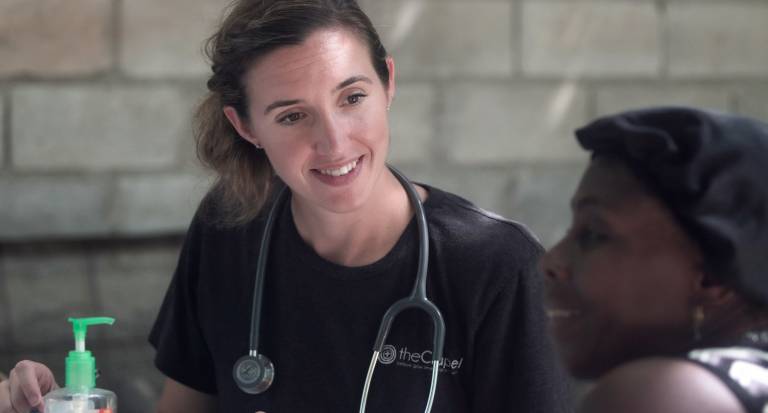
A new paper published in BMJ Public Health by the ECHILD team evaluates the effectiveness of the Family Nurse Partnership (FNP) in England using propensity score matching. This study utilises administrative data from health (Hospital Episode Statistics), education and children’s social care (National Pupil Database), which is the largest evaluation of the FNP in the UK to date.
The study found no evidence of an association between FNP and indicators of child maltreatment, which supports findings from previous evaluations of FNP, except for an increased rate of unplanned admissions for maltreatment/injury-related diagnoses up to age 2 years for children born to FNP mothers. The study found weak evidence that children born to FNP mothers were more likely to achieve a good level of development at age 5 years. Moreover, FNP mothers were less likely to have a subsequent delivery within 18 months of the index birth.
For future research, practice or policy, this study suggests that more research is needed to understand which elements of intensive interventions are most effective, for whom and when, and to help inform decisions about whether it is better to commission highly intensive services for a small portion of the target population or to extend and enhance universal services to better support all adolescent mothers. The full paper is available for free at the BMJ Public Health here.
2024 ADR UK Research Fellowships Funding Opportunity Using the ECHILD Database – Apply now
26 February 2024

Administrative Data Research UK (ADRUK) is inviting funding applications for research fellowships to conduct research and analysis using ADR England flagship datasets, including the ECHILD database. These large, de-identified datasets cover a diverse range of themes, from education and health to experiences of the justice system, enabling researchers to develop unprecedented insights into our society at a population level. Research fellowships can be up to 18 months. Applicants must be based at a UK research organization eligible for ESRC funding. Researchers new to using administrative data are encouraged to apply. Submit your full application by 4pm on 30 April 2024. For more information, visit the UKRI/ADR UK Research Fellowships page here.
ECHILD is highlighted as a key UK initiative for data to improve health in the early years by a new report by the Academy of Medical Sciences
21 February 2024

In a new report by the Academy of Medical Sciences’ Council, researchers recommend that current and future governments prioritise improving health and wellbeing, as well as reducing inequalities, in early childhood. This will transform the health and prosperity of the nation.
The report focusses on the evidence of the value of intervening from preconception up to the age of 5, highlighting areas where the evidence points to effective and impactful interventions, and setting out five priorities to urgently address in order to transform the health of the UK population.
One of the priorities is to collect, improve access to, and link a broader range of data to facilitate research into interventions and policies that improve child health and wellbeing, as well as their effective implementation. The ECHILD project is cited as one of the key initiatives that links data to better understand how education affects children’s health and how health affects children’s education.
For further insights and recommendations from the report, read more here.
New ADRUK funded project to focus on children at risk of poor outcomes
13 February 2024

A new research project will build a community of data users to improve the lives of children and young people at risk of poor outcomes. The project is funded by ADR UK with Foundations, the national What Works for Children & Families and is part of the ADR England Research Community Catalyst Awards. The project will use administrative data for research of the public good, and increase the use of ADR England flagship datasets, which includes the ECHILD database. The project will also identify research gaps and priorities and make the evidence useful for policy and practice.
The project is led by Associate Professor Lucy Griffiths from Swansea University, who will work with a team of researchers from UCL, the University of Bristol, and the University of Manchester. Co-investigators from UCL include Dr Jenny Woodman and Professor Katie Harron. The team will provide strategic leadership and support for the data community, which will include academics, practitioners, policymakers, and service users.
Associate Professor Lucy Griffiths said: “We are excited to create a vibrant and collaborative community of data users, who can address the most pressing questions about children and young people at risk of poor outcomes. We are grateful to ADR UK and co-funders for this grant, and we look forward to working with them and other stakeholders.”
Read more here.
Researchers uncover startling trends in school absences, exclusions and early school leaving among vulnerable children
31 January 2024

The UCL research team has uncovered significant insights into why some students miss school or face exclusion, shedding light on challenges that hinder their success. Key findings are relevant to attempts to tackle school absence and support all children to do well at school. The team have looked at absence in various forms, including exclusion and leaving school early, as well as officially recorded absence.
Using anonymised data from all English state schools linked to data from all NHS-funded hospital contacts (the ECHILD database), the focus has been on children with chronic health conditions, those with special educational needs (SEN) and children with social workers.
Key findings:
- Children who need additional state intervention from health, social care or education across the life course comprise a substantial minority. It is estimated that, by age 16 years, at least 1 in 4 children in England will have had a chronic health condition (recorded in hospital data), 1 in 3 ever have SEN provision recorded in state school, over a quarter have a social worker and nearly 4% are ever looked after in state care.
- Chronic health conditions: Children without chronic health conditions missed about 3% of their school sessions in 2018/19, compared to 5% of those with a range of physical and mental health conditions (i.e., an absence rate 66% higher among children with chronic health conditions). Absence rates were even higher where children had multiple health conditions and where they also had provision for SEN recorded. These rates are expected to be higher in the most recent years following the COVID pandemic.
- Children with social workers: Children with a history of having social workers are more likely to be absent and excluded from secondary school. For example, in one of our studies, 40% of children with records of having a social worker were excluded at least once (fixed-term or permanently) across secondary school, compared to 13% of children with no social care records.
- Children with social workers were also between 2.4 and 4.3 times (depending on their level of social care involvement) more likely to leave state school during the crucial Key Stage 4 years than children without. In other words, they leave before school leaving age and without GCSEs, possibly due to off-rolling or other exclusionary practices.
- Children with SEN provision: Children who had received SEN provision were also more likely to leave state school early and to be excluded. Where children had both a history of a social worker and provision for SEN, these risks were even higher. For example, of children with records of being in state care, 29% were excluded across years 7 to 11. This compares to 42% of children with records both of being in state care years 4 to 6 and SEN provision. As these are groups the state has at least twice recognised as needing extra support, higher rates of missing education are especially concerning.
For more information, please contact matthew.jay@ucl.ac.uk
What we learnt from collaborating with young people to explore adolescent mental health in schools
15 January 2024

Children and young people have important insights and perspectives on research, which may differ to those of research teams. We talked to 18 children and young people (aged 14-22 years) who are part of the Great Ormond Street Hospital Young Person’s Advisory Group to explore their views on using ECHILD to understand stress and mental health in secondary schools in England.
The group told us that social/friendship groups, and tests or exams are important sources of school stress. They also told us that anonymous polls aiming to monitor pupil mental health can be a helpful approach for understanding school wellbeing. Whilst loneliness was a challenge for many, particularly during the pandemic, having someone in school to talk to was viewed as a good way to reduce stress.
The ideas raised in our engagement session will inform future research using ECHILD to better understand mental health in schools. Read more here or contact the ECHILD team at ich.echild@ucl.ac.uk.
ECHILD team awarded HDRUK funding to improve transparency in health data access
09 November 2023

HDRUK has awarded funding to the ECHILD team to enhance the clarity of the procedures for obtaining health data for research purposes.
The UK Health Data Research Alliance want to make health data available for research to improve and save lives. They advocate transparency about how data is accessed and used. They have created the Alliance Transparency Standards to guide data custodians on how to communicate clearly and openly about their data access processes, website navigation, language use and research impact.
With these funds, the ECHILD team aims to conduct public consultations, enhance the clarity of the ECHILD data access procedures, improve ECHILD websites and materials, and will organise user group events.
You can read the Transparency Standards here:
New Training Course: Introduction to the ECHILD database, 25th - 26th March, 2024
02 November 2023

A new ECHILD course is now open for registration. The 2-day course will be run in March 2024 and is designed to give participants a practical introduction to ECHILD’s linked administrative datasets covering health, education and children’s social care.
The course is aimed at both analysts intending to use ECHILD and researchers who want to understand more about how the data can be used for policy relevant research. This course includes a mixture of lectures and practical sessions that will enable participants to put theory into practice learning how to analyse and interpret ECHILD data using R or Stata.
The course is organised by NCRM and run by the UCL Child Health Informatics Group and Administrative Data Research UK and will take place on 25th – 26th March 2024 at University College London. To register for the course or to find out more, please click here: https://go.soton.ac.uk/fo0.
Closing Soon: ADRUK Funding Opportunity to support research using the ECHILD Database
25 September 2023

Apply by 4pm, October 10, 2023
The deadline for applying to the ADRUK fellowships is fast approaching. The fellowships, funded by the Administrative Data Research UK (ADRUK) and the Economic and Social Research Council (ESRC), aim to support early career researchers in using administrative data to address priority research questions, generate insights and demonstrate the value of ADR England data. These Research Fellowships will be funded for up to 18 months in duration. The application window closes on October 10, 2023. Interested candidates can find more information by visiting the ADRUK website.
New publication from ECHILD team members – Pupils in state secondary schools in England are more likely to be excluded if they have a history of receiving social care or special educational needs services
28 July 2023

Pupils in state secondary schools in England are more likely to be excluded if they have a history of receiving social care or special educational needs services.
In new research using the National Population Database, covering all children starting state secondary school in September 2011 and 2012 (around one million students), the team examined the proportion of pupils who had been excluded during secondary school according to whether they had a history of receiving social care or special educational needs (SEN) services.
13% of all children were excluded at least once in secondary school. However, a third (33%) of children with a history of any form of social care in years 4 to 6 faced exclusion during their time at secondary school. Among those who had had a child protection plan or were looked after in state care, 40% were excluded.
If children also received SEN services, their probability of being excluded was even higher. For example, 46% of children who had had both a child protection plan and a history of SEN services were excluded at least once.
The findings also showed that there was a lot of variation across local authorities – this may in part be due to differences in the way local authorities and schools respond to the needs of students.
The full paper is available for free at Science Direct here.
New publication from the ECHILD team – Number and timing of primary cleft lip and palate repair surgeries in England: whole nation study of electronic health records before and during the COVID-19 pandemic - 19 June 2023
19 June 2023

This week saw a new publication by ECHILD researchers that explore delays in cleft lip and cleft palate surgery for children in England during the pandemic, as these children may need longer-term targeted support.
Researchers analysed de-identified hospital data and found there was an increase in the proportion of children who had a surgical repair of a cleft lip after the recommended age of 6 months to 58% between April 2000 and March 2021, compared to 19% in the preceding year. The proportion of repairs of cleft palates which took place after the recommended age of 12 months was much smaller, from 22% to 26%.
Differences were greatest during the first quarter of the COVID-19 pandemic period, particularly during April and May 2020 when cleft surgery completely stopped. The study also identified regional differences and for children born with additional health conditions.
During the first year of the COVID-19 pandemic, a larger proportion of children had their cleft repair surgery after the recommended timeframes. Further work is needed to better understand the immediate and longer-term impact of the pandemic on cleft services in England and the families that they serve.
The full paper is available for free at the BMJ Open Journal here.
Katie Harron describes how ECHILD can be used to improve services
10 May 2023
Survey results published on the views for ECHILD Database's use from parents and young people with additional needs
05 April 2023

We would like to thank all the children, young people, parents, and carers who participated in our survey, and the Scope team for their advice and distribution of this survey.
In this survey of 95 parents and children and young people with additional needs, there was support for using the ECHILD database for research, with respondents most positive about use by research from universities, government, and charities.
The three most important research priorities were related to community child health services, GPs health care, and mental health care for children with additional needs.
Findings from this survey will help shape the use of ECHILD for research, policy, and practice. The full report is available here:
Researchers will soon be able to apply to use the ECHILD Database to answer questions that provide benefit to the provision of child health, social care, and education
21 February 2023

In 2023, the ECHILD Database will be made available to external researchers based in the UK via the ONS Secure Research Service. Researchers will need to be approved and submit a successful application to access the data.
Check back here for more information about accessing the linked data as an approved researcher. Updates about ECHILD will also be published via Twitter and through the ADR UK mailing list found here: https://www.adruk.org/contact-us/mailing-list-sign-up/
Ruth Blackburn talks at the Catherine Peckham Symposium on her use of the ECHILD Database for evaluating the timing of stress-related presentation to hospital
22 November 2022
Ruth Blackburn's talk at the UCL ICH Catherine Peckham Symposium reported on her study that evaluated the timing of stress-related presentation to hospital in relation to school term or holidays and relationship with health behaviours, based on analyses of the ECHILD database of children in England. The talk can be watched above and here: https://youtu.be/oHaKHSJ-WV0. The study is also free-to-read in BJPsych Open here.
ECHILD Researcher wins the ONS Early Career Research Award 2022
18 October 2022

The ECHILD team is very proud to announce that Dr Nicolás Libuy Rios has been awarded the 2022 ONS Early Career Research Award for his work on gestational age at birth, chronic conditions and school outcomes: a population-based data linkage study of children born in England.
Nicolás work explores child development, school attainment and provision of special educational needs (SEN) considering gestational age and chronic health conditions.
Analysis of de-identified hospital and education records found that children born even a few weeks too early are less likely to achieve expected levels of attainment and are more likely to have SEN provision than those born at 40 weeks. However, chronic conditions in school-aged children contribute more to the burden of SEN and low academic attainment than preterm birth.
Dr Nicolás Libuy, lead author of the study, says, "Our results show how important it is to provide additional support for children who are likely to start school at a developmental disadvantage. We exemplify this by focusing on the detrimental effect on children born preterm and with chronic conditions. Still, more research is needed to explore other health conditions linked with children's development in more detail. Our research stresses that better coordination between health and educational sectors could help design better support for children with health conditions before and during their school years".
The full paper is available for free at the International Journal of Epidemiology here.
Research from the ECHILD team is shortlisted for the ONS Research Excellence Awards People’s Choice Award
30 August 2022

Each year the ONS invite the public to decide which research project has delivered the biggest societal impact. The ECHILD team is proud to announce that their research exploring child development, school attainment and provision of special educational needs considering gestational age and chronic health conditions has been shortlisted for the 2022 award.
You may review all of this year’s shortlisted research and cast your vote here.
The team analysed de-identified hospital and education records and found that children born even a few weeks too early are less likely to achieve expected levels of attainment and are more likely to have SEN provision. However, chronic conditions in school-aged children contribute more to the burden of SEN and low academic attainment than preterm birth. This highlights how additional support prior to school entry to improve readiness could be targeted at high-risk groups based on early health indicators shown to influence later outcomes. Better coordination between health and educational sectors could help design better support for children with health conditions before and during their school years.
The full paper is available for free at the International Journal of Epidemiology here and please cast your vote for the 2022 ONS People’s Choice Award here.
The HOPE Study launches three SEND national surveys
01 July 2022
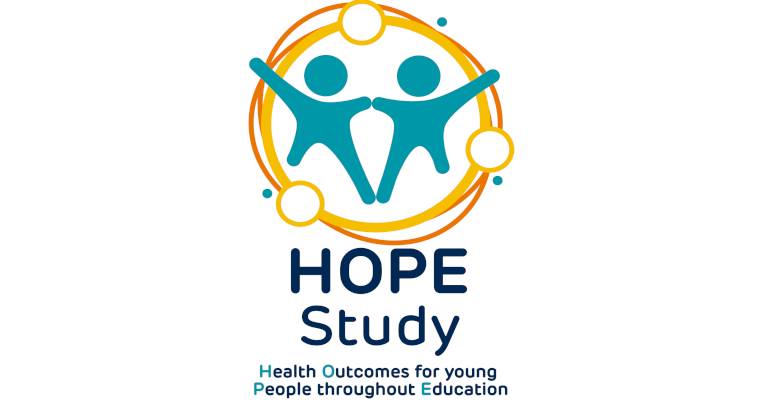
The Health Outcomes for young People throughout Education (HOPE) study has launched three national surveys. These surveys aim to explore the variation in Special Education Needs and Disabilities (SEND) identification and provision across all local authorities in England. The three surveys have been designed with and are for children and young people with SEND, their parents and carers, and wider stakeholders (professionals working in education, the health services, and for local authorities).
An integral part of the survey development process has been the involvement of HOPE’s three advisory groups. This has allowed each survey to reflect the lived experiences of those who are responding and has ensured surveys are as accessible as possible.
To access and complete a survey please follow this link: https://redcap.link/HOPEsurvey.
New data resource from the ECHILD team – Interactive data visualisation to understand ECHILD’s different datasets
28 June 2022
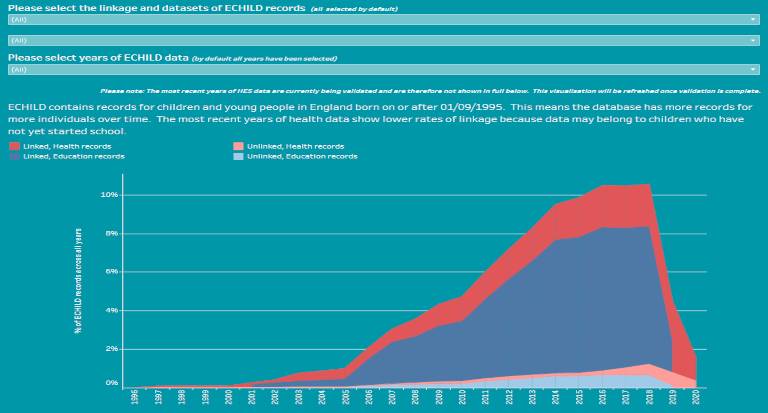
A new data visualisation has been published by the ECHILD team. This data visual allows you to understand more about the different types of de-identified records and their linkage within the ECHILD database. You can look at the years of available data in ECHILD and the proportions of different record types. To view the data visualisation, please click here.
Linking mother and child records in the ECHILD database
23 June 2022

Our patient, pupil, parent and public engagement groups are guiding how the ECHILD database should be used to understand the impact of the COVID pandemic and lockdown on children and young people with additional needs. Using routinely collected data we can compare groups of children with additional needs followed up before the pandemic, with similar children followed up during the pandemic. A key consideration for these groups is how the experience of families - rather than individual children - can be investigated. This is particularly important for children who have faced serious adversity during the pandemic, such as the loss of a parent.
The ECHILD team is now one step closer to this goal as we have been granted permission for the records of birth mothers and their infants to be linked within the ECHILD database. Records will be linked using methods developed by Dr Katie Harron* that do not use patient identifiers (such as name, NHS number or full address) as this information is not included in the ECHILD Database, which is deidentified. This development will help us to understand how the health, education and social care experiences of children during the pandemic have been shaped by maternal health and wellbeing.
* Harron, K., Gilbert, R., Cromwell, D., & van der Meulen, J. (2016). Linking Data for Mothers and Babies in De-Identified Electronic Health Data. PloS one, 11(10), e0164667. https://doi.org/10.1371/journal.pone.0164667
New publication from the ECHILD team – Gestational age at birth, chronic conditions, and school outcomes: a population-based data linkage study of children born in England
31 May 2022

New research from the ECHILD team explores child development, school attainment and provision of special educational needs (SEN) considering gestational age and chronic health conditions.
Analysis of de-identified hospital and education records found that children born even a few weeks too early are less likely to achieve expected levels of attainment and are more likely to have SEN provision than those born at 40 weeks. However, chronic conditions in school-aged children contribute more to the burden of SEN and low academic attainment than preterm birth. This highlights how additional support prior to school entry to improve school readiness could be targeted at high-risk groups based on early health indicators shown to influence later outcomes.
Dr Nicolás Libuy, lead author of the study and member of the ECHILD study team, says, "Our results show how important it is to provide additional support for children who are likely to start school at a developmental disadvantage. We exemplify this by focusing on the detrimental effect on children born preterm and with chronic conditions. Still, more research is needed to explore other health conditions linked with children's development in more detail. Our research stresses that better coordination between health and educational sectors could help design better support for children with health conditions before and during their school years".
The full paper is available for free at the International Journal of Epidemiology here.
New publication from the ECHILD team – Decreases in planned hospital care for vulnerable young people during the COVID-19 pandemic
18 May 2022

This week a new publication by ECHILD researchers explores how vulnerable young people missed out on planned hospital care during the COVID-19 pandemic.
Researchers analysed de-identified hospital, education and social care records from the ECHILD Database for over 3 million secondary school students in England and found that those who were receiving special educational needs (SEN) support or children’s social care (CSC) services had greater decreases in planned hospital care than their peers.
During the pandemic, the 21% of students receiving SEN support or CSC services bore 25% of the decrease in outpatient attendances and 37% of the decrease in planned hospital admissions. They were also less likely than their peers to have face-to-face outpatient care during the pandemic.
Planned hospital care is used to investigate, monitor, manage and treat young people’s health needs. The large decreases young people experienced during the pandemic will mean that some health needs have gone unmet which may have long-lasting impacts on their health and well-being.
Dr Louise Mc Grath-Lone, lead author of the study and member of the ECHILD study team, says “Given that they experienced greater disruptions to their planned care during the pandemic and already have poorer outcomes than their peers, young people with special educational needs or receiving children’s social care services may need to be prioritised in the government’s plans to tackle hospital waiting lists.”
The full paper is available for free at Archives of Disease in Childhood here.
New publication from the ECHILD - What makes administrative data research-ready? A systematic review and thematic analysis of published literature
03 May 2022

Last week a new publication by ECHILD researchers explores what is meant by the term "research-ready".
Administrative data are a valuable research resource, but are under-utilised in the UK due to governance, technical and other barriers. In recent years, there has been considerable government investment in making administrative data "research-ready". A common understanding of what constitutes research-ready is needed to establish clear principles and frameworks for their development and the realisation of administrative data’s full research potential.
The team screened 2,375 peer-reviewed papers related to research-ready administrative data and identified 38 relevant studies published between 2012 and 2021.
The term “research-ready” was found to be used inconsistently and there was some conflation with the concept of data being ready for statistical analysis. Thematic analysis identified five defining characteristics of research-ready administrative data: (a) accessible, (b) broad, (c) curated, (d) documented and (e) enhanced for research purposes. These characteristics of research-ready administrative data could act as a starting point to help data owners and researchers develop common principles and standards. In the more immediate term, the proposed characteristics are a useful framework for cataloguing existing research-ready administrative databases and relevant resources that can support their development.
The full paper is available for free at the International Journal of Population Data Science here.
The ECHILD project is recognised as an example of good practice by the Office for Statistics Regulation
11 March 2022
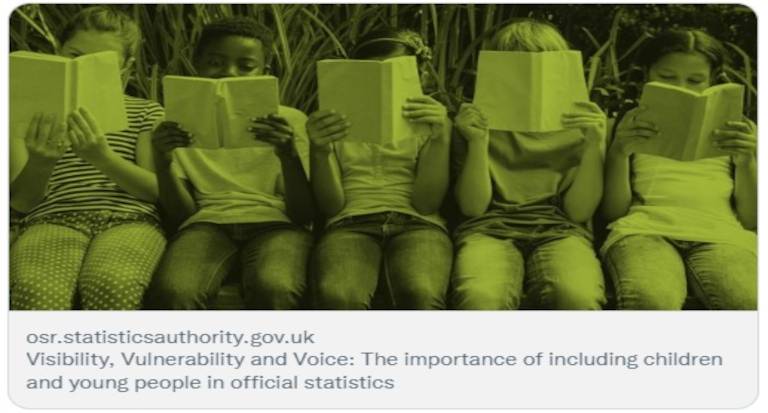
The ECHILD project is recognised as an example of good practice by the Office for Statistics Regulation in their report on Visibility, Vulnerability and Voice: The importance of including children and young people in official statistics.
The OSR highlight how it is difficult to see a holistic picture of children and young people’s lives through official statistics. Joined up approaches are needed to enable studies to collect, or link, data on children and their families, for more than one aspect of their lives or over time.
The ECHILD project is recognised for the improvements it has made to the sharing and linkage of data needed to enable a more rounded picture of children and young people’s lives, whilst protecting their data.
The OSR report: Visibility, Vulnerability and Voice: The importance of including children and young people in official statistics, is available for free here.
Recently published research from ECHILD team members shows that vulnerable children may be missing out on education aged 14 to 16
08 March 2022

One in 15 children in England who got help from children’s social care aged 8 to 14 were no longer enrolled in a state school in their crucial GCSE years, aged 14 to 16, according to new research from UCL. This is almost three times higher than for children who never received help from children’s social care.
The researchers showed that those with more intensive support from children’s social care were the most likely to be not enrolled. Of the 1% of all children who were looked after in foster or residential care, 10% were not enrolled aged 14 to 16. For children closely monitored on a child protection plan (2% of all children), 8% were not enrolled. And for those receiving other types of help (9% of all children), 6% were not enrolled.
The research team used the anonymised National Pupil Database linked to social care data for 1 million children starting state secondary school in 2011 and 2012. These children turned 16 by 2017. The study covered all children in English state schools, including alternative provision placements. This is the first time that a national study has examined school enrolment in children who got help from children’s social care or for special educational needs.
The study also followed the 40% of children in mainstream schools who received some support or adjustments for special educational needs between the ages 5 to 14. Of these, 4% were no longer enrolled aged 14 to 16. This compares to 2% of children who did not get adjustments for special educational needs. Children who got both support from children’s social care and for special educational needs were most likely to no longer be enrolled in state school aged 14 to 16.
We do not know for certain whether these children are receiving an education. Some of the children in the study may have become home or privately schooled but, given their circumstances, it is likely that a substantial proportion are not receiving an education. The National Pupil Database does not include children who are home schooled or in private schools or reasons why they leave state school.
“Children receiving help from children’s social care services,” Dr Jay, the lead author of the study, says, “or for special educational needs are some of the most disadvantaged and most in need of education and protection. The GCSE years are crucial for future employment, earnings and life chances.”
The authors also point out that even where children stay enrolled in state school, there are many children who are frequently absent from school and some are excluded. Past research has shown that children who get help from children’s social care are also more likely to be absent or excluded from school.
Prof Gilbert, a co-author of the research, adds that “the Department for Education and Ofsted recognise this problem and it is welcome that Virtual School Heads are being extended to all children with a social worker and that Ofsted inspect schools with a view to tackling off-rolling. More, however, could be done. Schools are likely to be under-resourced to meet the complex needs of these children.”
The full paper is available for free at ScienceDirect here.
Using administrative data to understand and address child maltreatment
04 March 2022
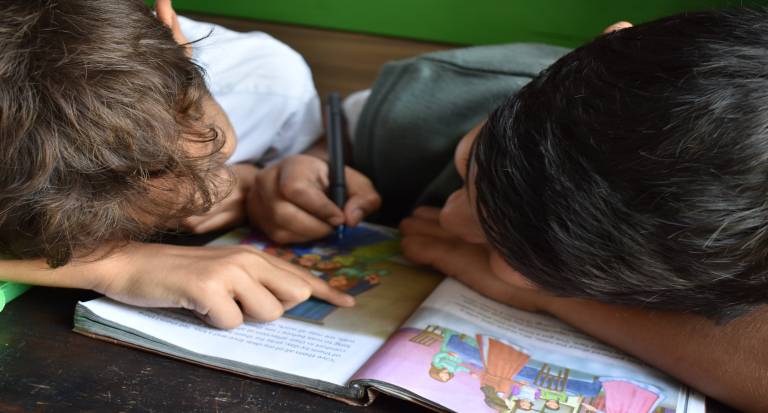
ECHILD team members contributed to a scoping review to investigate how previous studies have used linked administrative data to contribute to public health research into child maltreatment.
The authors found 121 studies, mostly from the USA and Australia, and all using de-identified social services and health data. You can read more about this work in the recently published, free-to-read paper in SAGE journals here.
ECHILD project publishes new guide to the ECHILD Database
29 November 2021

A new resource for researchers interested in the ECHILD Database has been published in the International Journal of Epidemiology. The ECHILD Data Resource Profile explains what information the database contains and discusses its key strengths and limitations for research that explores how children’s health affects their education, and how their education affects their long-term health.
The ECHILD Database brings together de-identified health, education and social care data for all children and young people in England who were born since September 1995. It includes linked data for around 14.7 million people.
The ECHILD Database will be available to researchers next year.
You can read more the ECHILD Data Resource Profile in the International Journal of Epidemiology here.
Recently published research from ECHILD team members shows that young people are more likely to be admitted to hospital for stress-related reasons during term time than the holidays
23 November 2021

Researchers analysed de-identified hospital data for 571,388 young people in England and found that 1 in 13 girls (8%) and 1 in 25 boys (4%) were admitted to hospital for stress-related reasons between the ages of 11 and 17 years. Most stress-related hospital admissions related to mental health problems (38%) or to abdominal pain, headache or other pain (35%).
Rates of stress-related hospital admissions, including mental health problems, were greater during school terms than the holidays which suggests that the school environment may be a contributing factor. Rates were particularly high for girls aged 14- and 15-years-old. Schools interventions to promote pupils’ resilience and reduce mental health problems may need to be targeted to and adapted for high-risk groups.
Stress-related hospital admissions might be an opportunity to tackle the early signs of mental health issues among young people through effective and appropriate mental health interventions, which could ultimately reduce the chance of more serious conditions developing in later life.
Dr Ruth Blackburn, lead author of the study and member of the ECHILD study team, says “The stress-related hospital admissions that we looked at in our study are just the tip of the iceberg of a very common and complex problem among teenagers, particularly girls. Most emergency healthcare presentations by teenagers are to A&E departments or GPs which haven’t been included in our analysis.”
You can read more about this work in a recently published, free-to-read article in BJPsych Open here.
Recently published research from the ECHILD team members shows that School exam results were the same for children regardless of having had standard or modified formula as a baby
15 November 2021
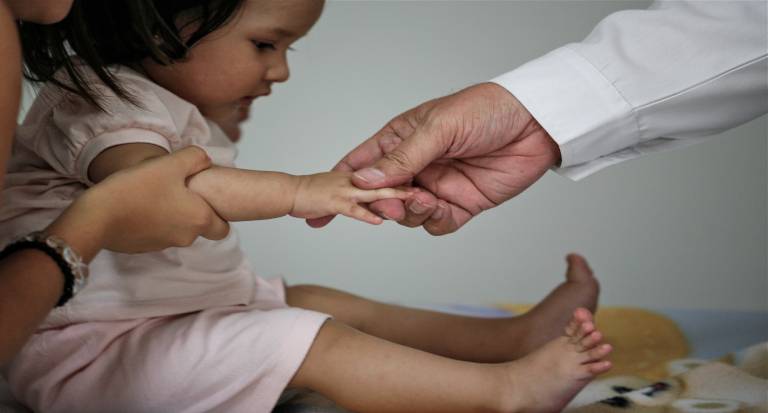
Researchers linked data from seven randomised controlled trials to children’s performance in school exams at ages 11 and 16 and found no clear differences in their results, suggesting no long term benefits of the tested modified formula milks on brain (cognitive) development.
Breastfeeding is best for infant nutrition, but breastfeeding rates beyond six weeks are low in many countries. Instead, infant formulas (breast milk substitutes) are widely used to supplement or replace breastfeeding and are consumed globally by more than 60% of infants aged less than six months.
It has been suggested that certain nutritional modifications to formula milk promote cognitive development, but trial evidence that modified formulas benefit long term cognitive development is inconclusive due to high drop-out of participants over time. The researchers addressed this problem by analysing results from seven historic randomised trials of nutritionally modified infant formula involving 1,763 participants. These trial data were linked to school records for 91% of participants, focusing on what effect (if any) the formula had had on their scores for national mandatory exams in maths at 16 years (GCSEs). They also looked at performance in English exams at age 16 years and maths and English at age 11 (Key Stage 2), eligibility for special educational needs support and achieving five or more GCSE grades of C or higher.
“In summary, differences in academic performance between modified and standard formulas were consistent with differences measured in the original trials and in the external literature; that is, no benefit of the infant formula modifications on cognitive outcomes,” they write.
“This study sets a precedent for other trials and cohorts to use linkage of historic trials to administrative data to address high participant drop-out over time and answer important questions about long term outcomes in children and young people,” they add.
New publication from the ECHILD and NIHR CPRU team - Children with chronic health problems and adolescents receiving support from social care had greater deficits in planned hospital care during the pandemic than their peers
08 November 2021
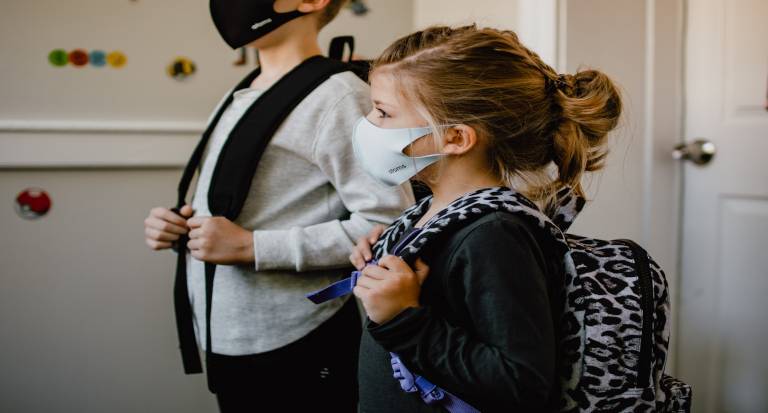
Last week a new report by ECHILD researchers was published which assessed the impact of the pandemic on contact with hospitals by children and young people with additional health, educational or social needs and their peers.
The ECHILD team, with the NIHR Children and Families Policy Research Unit, analysed linked administrative data in the ECHILD Database to look at changes in the rates and planned hospital outpatient attendances and admissions, and unplanned hospital admissions during the first nine months of the pandemic.
The researchers focused on two groups of children with additional needs: children aged 0 to 4 years who were born too early or too small or had a chronic condition; and secondary school pupils who received special educational needs support or children’s social care services.
The children and young people with additional needs bore large and disproportionate deficits in hospital contacts during the first nine months of the pandemic compared with their peers. These deficits were greatest for children with multiple additional needs. As the pandemic progressed, there was some ‘catch-up’ in planned hospital admissions for children aged 0 to 4 years and in outpatient attendances for infants.
Deficits in planned hospital care could have consequences for children because of diagnoses or treatments that were delayed or foregone. Childhood is a time of rapid development and delays in treating health issues may hold a child back. Deficits in unplanned hospital admissions may be positive (because fewer children needed care for infections or injuries, for example), but could also reflect unmet health needs.
The report’s findings indicate a need for targeted ‘catch-up’ funding and resources for child health, particularly for children with additional needs who were affected disproportionately. For example, secondary school pupils receiving special educational needs support or social care services may need to be prioritised for face-to-face outpatient care as it is unclear how effective remote care is for these children. More research about how delays to treatments for childhood conditions impact children’s outcomes is also needed.
The full report “Changes in hospital contacts during the COVID-19 pandemic among vulnerable children and young people” is available to download from UCL’s Children and Families Policy Research Unit website.
This project received funding support from National Institute of Health Research, Administrative Data Research UK and Health Data Research UK.
New publication from the ECHILD team - Linking education and hospital data in England: linkage process and quality
20 September 2021

Last week saw a new publication from the ECHILD team. The "Linking education and hospital data in England: linkage process and quality" paper has been published in IJPDS, more information can be found here and the paper itself is available here.
The educational and health records for nearly all (>95%) school children in England have for the first time, been successfully linked to create an anonymised, securely held database for research. This ECHILD (Education and Child Health Insights from Linked Data) database will enable a significant improvement in the scale and depth of research into the relationships between health, education and social care across the lives of millions of children. However, researchers will need to be aware that linkage rates were not equal for groups of children from different backgrounds.
Records for all children born in four specific years and enrolled at state schools in England were studied and showed improvements in linkages rates over time - from 92% for those born in 1990/01 to 99% for children born in 2004/05. Advances in data quality through the introduction of the national Personal Demographics Service in 2004, the online system to register births from 2009, and better-quality data returned by hospitals, contributed to these improvements.
However, researchers found lower linkage rates for children from ethnic minorities and those living in more deprived areas. This might reflect poor recording of non-traditional names, or more mobility in disadvantaged groups. First names, surnames, date of birth and postcodes were the identifiers used to link the children’s education records with their hospital records.
These differences in linkage accuracy are relatively small but they highlight the need for health, welfare and educational services to continually improve data quality. And they show that poor recording of key data could have consequences for policy. For example, the data could underestimate health care needs in black or mixed race groups because hospital records in these groups are less likely to link to education records than for white pupils.
Researchers addressing questions relating to ethnic minority or deprived groups need to consider therefore whether to adjust for missing data among these groups due to missed links. Statistical techniques can be used to account for missed links in analyses.
Overall however, the high rate of successful linkages means the ECHILD database offers a vital resource for research that will help policy makers and services understand how health and educational needs and outcomes vary for children from different backgrounds and in different areas. By measuring differences between such groups of children, ECHILD can generate evidence for policy makers about inequalities in health and education, as services recover from the impact of COVID.
The database cannot be used by anyone to identify individuals. All personal information such as names and postcodes have been removed and it can only be accessed by approved researchers in a secure environment at the Office for National Statistics.
ECHILD at the Institute for Government's Data Bites event
10 September 2021
This week Prof. Ruth Gilbert introduced ECHILD at the Institute for Government's Data Bites event focused on children and young people's data.
Ruth introduced ECHILD’s alignment to cross-government policies that recognise the importance of intervening early to support children and families to give children the best start and maximise their capabilities.
Children need support from healthcare, schools and social care, but until now these data have not been joined up. The ECHILD database is being used to find out how these services support vulnerable children and the impact of the COVID-19 pandemic and lockdowns on children’s health and education in the longer term. Please find a recording of the Data Bites event above.
ADR UK publish the ECHILD Stakeholder Event Report
10 August 2021

In April the ECHILD project brought together organisations representing children’s interests at the ECHILD Stakeholder Event. The purpose of the event was to provide an opportunity for stakeholders to ask questions about and share their views on the ECHILD Database and its use in future research for the public benefit. Today ADR UK has published the report from the event, highlighting the key messages from government and stakeholders regarding the ECHILD Database. This report can be found here.
In addition, Louise Mc Grath-Lone, a researcher on the ECHILD Project has been giving her thoughts on the strengths of this administrative data resource for research that explores the health and education outcomes of children and young people in England. Louise reflections can be found here on the ADR UK website.
How can we tackle racism in data linkage?
01 June 2021

The ECHILD Database links school and health records for children in England creating a vast, anonymised database that can be used to study the links between a child’s education and their health.
But when looking at which groups of children have linked records in the ECHILD Database, the research team from the ECHILD project discovered that those from ethnic minorities were less likely than their peers to have records that were successfully matched.
This type of ethnic bias in data linkage happens when records are less likely to be linked for particular ethnic groups. It is a well-known problem and is concerning because it misrepresents, and could even underestimate, the health needs of ethnic minority groups.
The way that information is collected can contribute to ethnic bias. For example, data collection systems are usually designed to fit Western name standards (a first, middle, and last name) and don’t account for cultural differences in name structures, like Hispanic groups who can have multiple first or middle names, and often two surnames.
This can mean that ethnic minorities are more likely to have missing or incorrect names recorded. And, if matching records requires exact agreement on names, it can lead to ethnic bias in data linkage.
In the ECHILD project, the research team are taking steps to tackle this type of ethnic bias in data linkage.
Dr Katie Harron from the UCL Institute of Child Health says “By relaxing the rules around exact matching on name when creating the ECHILD Database, we were able to improve linkage rates between health and education records for ethnic minority groups. This will help to reduce the bias that arises through missing records from a particular ethnic group. But, we still need to think carefully about how we analyse the data to compensate for any biases it still contains.”
Dr Louise Mc Grath-Lone from the UCL Institute of Health Informatics adds that “It’s also important that organisations work to improve the quality of the data they collect; for example, by training patient-facing staff about the diversity of name structures and having more inclusive computer systems for recording it”.
To highlight that much more needs to be done to tackle the problem of ethnic bias in data linkage - from how we collect data, to how we link it, and how we analyse it – the ECHILD project team have written a letter published in The Lancet Digital Health, which you can read here.
ECHILD data to study the impact of delayed surgery on children with cleft lip and palate.
26 April 2021

Every year, about 1,200 children in the UK are born with a cleft lip or palate, or both. Early treatment to repair the cleft is crucial and surgery, done at one of only a handful of specialist hospital units, usually starts in the first year of a child’s life.
But the Covid 19 pandemic has delayed many non-emergency medical procedures. Data from the ECHILD project will help identify how that may affect children with orofacial clefts and what that might mean for their future progress at school.
Previous studies have shown that children born with clefts are more frequently absent from school for medical reasons and their achievement tends to fall a bit below the national average in all areas of learning.
Using the ECHILD database, linking anonymised hospital and school records for all children in England, researchers will look at treatment for those with a cleft born immediately before, and during the pandemic. They will then estimate how any treatment delays might affect the achievement of these children at primary school.
“This project is important for several reasons,” says Jan van der Meulen, Professor of Clinical Epidemiology at the London School of Hygiene & Tropical Medicine. “It will estimate the indirect effect of Covid-19 on a specific group of children. But it will also demonstrate how school achievement can be used to evaluate early treatment for children with other congenital abnormalities. And it will help schools gain a better understanding of what can be done to help children with long term medical conditions.”
ECHILD Gestational Age Study
19 April 2021

Preterm babies often go on to have special educational needs. But the extent of those needs isn’t easy to predict. This makes it hard to put the right support in place for them at the crucial early stages in their development, before they go to school.
That’s what the Gestational Age Study, a part of the ECHILD project, is hoping to address.
The ECHILD database, which links anonymised health and school records, will make it possible for researchers to focus on the records of all children born in England before 37 weeks gestation.
Linking health and educational data back in time so children can be followed from birth throughout their school years, they will be able to see the extent to which attainment at school varies in relation to how early a child is born, as well as to their specific health conditions.
Not all preterm children will have poor outcomes at school. But the study, the first done in this way and with such a large number of children, will shed light on why some do better than others.
The results could then be used to inform policy decisions about what kind of support these children are likely to need to give them the best start in life. They will also reveal which children might need extra support to catch up after the COVID pandemic.
“The data will allow us to understand whether children with different conditions relating to preterm birth will need extra support in the early years,” says Dr Katie Harron from the UCL GOS Institute of Child Health. “And that will help everyone involved in their care give them the best preparation possible before they get to school.”
ECHILD Database to offer insight into pandemic’s impact on vulnerable children and teens
13 April 2021

Covid-19 has caused widespread disruption in the lives of children and young people. Even more so for those needing extra support for their health or welfare, with reduced access to many of the services they use because of school closures and lockdown.
Just how extensive the pandemic’s impact has been on the health of these children is something researchers from UCL are now assessing using information held in the ECHILD Database.
The ECHILD data, linking anonymised school and hospital records for children in England, includes information about unplanned admissions to hospital and attendance at Accident and Emergency.
The researchers are investigating how often young people needing support for health, education and social welfare needs have made these sorts of visits to hospitals since Covid-19 broke-out in early 2020. And they want to know whether they attended more frequently than their peers.
In normal times, children with additional needs are likely to have had a lot of contact with healthcare, possibly for physical or mental health disorders or both. Some children and teens will have received extra help for special needs or from social care. But a lot of this help stopped during lockdown.,
“We think vulnerable teenagers may have been more likely than their peers to have unplanned admission or A&E attendances during Covid-19 because of the disruptions to their support services,” says Dr Louise Mc Grath-Lone,” a researcher at UCL. “This study will help us understand which groups of children may need more or different support as we move on from the pandemic.”
The researchers will be looking at data for young people aged under 25 during the pandemic and hope to report their findings later this year.
ECHILD project links school and hospital records for 95% of pupils in England
01 April 2021

For the first time, researchers have successfully matched key school and health records for children in England creating a vast, anonymised database that can be used to study the links between a child’s education and their health.
But while the research team from the ECHILD project now have linked records of 95% of children in the state school system, they have discovered that those from ethnic minorities and from deprived backgrounds are less likely than their peers to have records that can be successfully matched.
The researchers speculate this could be because of inconsistencies in the recording of non-standard or non-English names when children attend hospitals.
It’s also possible that some of these young people move home frequently, or move between different family carers, so other significant information like postcodes are not always kept up to date.
The ECHILD team do not have access to individual names and addresses, or any other information that would identify any of the 14.7 million children in the new database. Those details are held securely by NHS Digital, which compiled them from school and hospital records.
But they can see the ethnic origin of the children and what the level of economic deprivation is in the area where they live. This is what alerted them that children from ethnic minorities – including Asian, Black, Chinese, Mixed and Any other ethnic group, as well as those from poorer areas, are more likely to have gaps in their records.
Dr Katie Harron from the UCL GOS Institute of Child Health says this new database of linked health and education records is “a fantastic achievement. It will allow researchers to bring together the different pieces of the jigsaw puzzle of a child’s life over time.”
But she says having this deeper understanding of the quality of the data is a crucial first step.
“We need to think carefully about how we analyse the data to make sure we’re not perpetuating bias that arises through missing records from a particular ethnic group,” she warns. Missing links to health records could mean that we underestimate health needs for these groups. “There are statistical tools we can use to compensate and it’s important that researchers are aware of the issues so they know which tools to use to overcome them.”
ECHILD project publishes new guide to the ECHILD Database
08 March 2021

The Education and Child Health Insights from Linked Data (ECHILD) project published a new guide to the ECHILD Database today, which describes what information the database contains, who it includes and how it was created.
The ECHILD Database spans more than two decades and includes linked school and hospital records for around 14.7 million pupils in England. It was created for the ECHILD project but, later this year, other researchers will be able to apply to access the ECHILD Database through the Office for National Statistics Secure Research Service.
Dr Louise Mc Grath-Lone from the Institute of Health Informatics, lead author of the guide, says “The ECHILD Database opens up lots of exciting opportunities for research that explores how children’s health affects their education, and how their education affects their long-term health. We hope this new guide will help researchers who are interested in using the ECHILD Database to understand the types of questions it could be used to answer confidently, bearing in mind its strengths and its limitations”.
The ECHILD Database User Guide is free to download from the ECHILD project website here: ![]() The Education and Child Health Insights from Linked Data (ECHILD) Database - An Introductory Guide for Researchers - v1.1.0 March 2021 and from the News and Resources page.
The Education and Child Health Insights from Linked Data (ECHILD) Database - An Introductory Guide for Researchers - v1.1.0 March 2021 and from the News and Resources page.
ECHILD project launches new website
14 December 2020
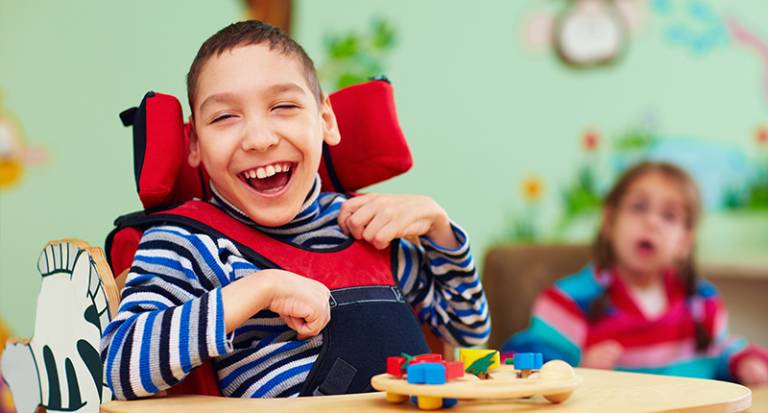
The new website for the Education and Child Health Insights from Linked Data (ECHILD) project was launched today.
ECHILD is a landmark project that brings together administrative data that is collected by hospitals, schools and social care services for all children in England.
This newly linked data spans more than two decades and will allow researchers to investigate how children’s health affects their education, and how their education affects their health.
Professor Ruth Gilbert from the Institute of Child Health, who is leading the ECHILD project, says “Understanding the impact of children’s health on their schooling, and schooling on their health, will help services improve the way they support children and their families”.
The research team at UCL are currently looking at the impact of the COVID-19 pandemic on children with additional health, education and social care needs.
Dr Ruth Blackburn says “COVID-19 is increasingly exposing cracks in our society, such as inequalities by ethnicity, wealth, gender, health and disability. The ECHILD project is helping us to identify which groups of children most urgently need support and to develop policies that better meet their different combinations of health, education and social care needs”.
The data used in the ECHILD project is de-identified which means it does not contain any names, addresses, birth dates or NHS numbers so individuals cannot be identified. It is held on the Office for National Statistics Secure Research Service.
 Close
Close

